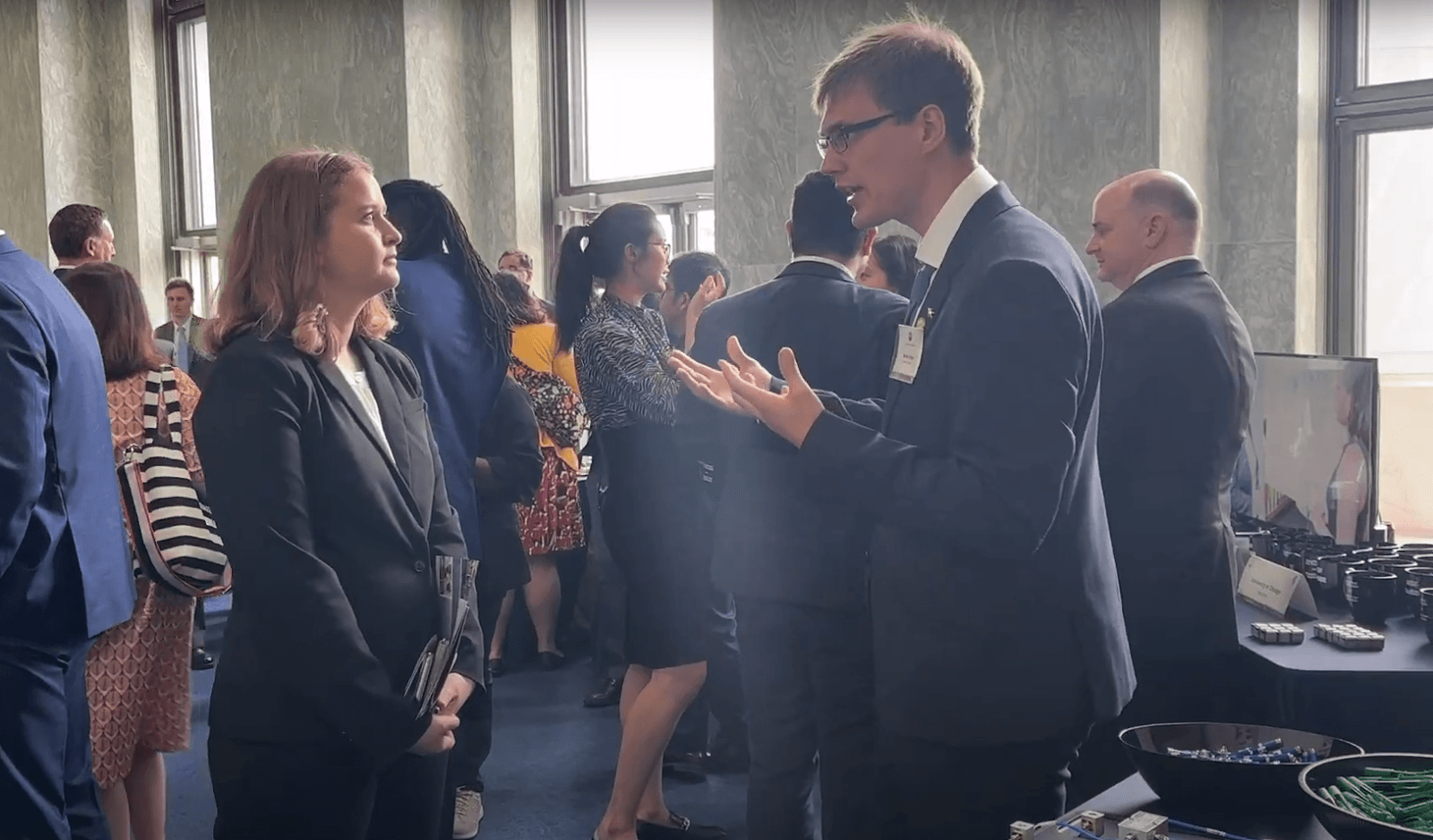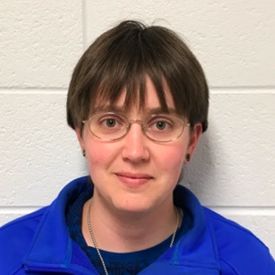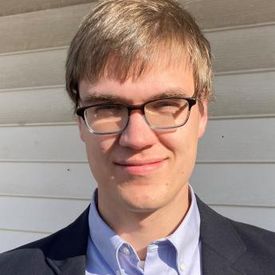Alicia Kollár and Graduate Student Martin Ritter Represent RQS at Congressional Showcase
May 31, 2024
RQS graduate student Martin Ritter speaks to a Congressional staffer at the NSF Quantum Showcase
The National Science Foundation (NSF) held a showcase for Congressional representatives and staffers at the Rayburn House Office Building on Capitol Hill to learn about the potential of quantum science and technology.
On April 29, representatives from 15 NSF-funded quantum institutes, including the Quantum Leap Challenge Institute for Robust Quantum Simulation (RQS), a multi-university institute headquartered at the University of Maryland (UMD) with researchers at Duke, Princeton, Yale, and North Carolina State University, showcased the vast scope of today’s growing quantum ecosystem through demonstrations of foundational scientific research, cutting-edge technology, and educational programs.
In his opening remarks, Congressman Frank Lucas highlighted the unique contributions of centers like RQS.
“Since we first passed the National Quantum Initiative...quantum science has grown by leaps and bounds, and one reason for that is the creation of NSF’s Quantum Leap Challenge Institutes,” said Lucas, who is the Chair of the House Committee on Science, Space, and Technology. “Quantum technologies are, and will, revolutionize our world.”
Additional US Representatives in attendance were Congresswoman Zoe Lofgren, Ranking Member of the House Committee on Science, Space, and Technology, and Congresswoman Haley Stevens, Ranking Member of the Research and Technology Subcommittee, as well as NSF Director Dr. Sethuraman Panchanathan. Over the course of the afternoon, dozens of Congressional aides and staffers visited the RQS table to learn about the importance of the Institute’s research in quantum simulation, an endeavor including over 50 nationwide partnerships in industry, academia, and government; and its workforce development initiatives.
Alicia Kollár, Co-Principal Investigator of RQS and Chesapeake Assistant Professor of Physics at UMD, and Martin Ritter, physics graduate student, represented RQS at the summit. Their presentation included two experiments featured in an undergraduate quantum engineering teaching laboratory being developed by RQS: a build-your-own Michelson interferometer setup and a vector network analyzer kit.
These devices allow undergraduates the opportunity to experience “quantum technology at their fingertips”, said Kollár, who is also the Co-Associate Director for Research at RQS.
Such experiences are designed to prepare students planning to join the quantum workforce, an industry which owes its rapid growth to the research breakthroughs being made in academic, government, and industry. This surge in scientific and economic progress has not gone unnoticed by legislators.
Reflecting on his conversations with attendees, Ritter remarked, “both the staffers and the members of the science committee [seem] enthusiastic about supporting us.”
“What we’re really trying to show here is that quantum technologies can and have transformed the world; they’re not something that is totally inaccessible and only a bastion of pure theoretical physics,” said Kollár. at the showcase. “We’re showing that you can start to teach these things at the K-12 and undergraduate levels, and that the community is really taking the steps to reach a broader, younger, and more cross-disciplinary audience.”
The undergraduate teaching materials on display at the Capitol were just a few of the many educational resources produced and shared by RQS. With a variety of programs from middle school education through postdoctoral scholarship, the Institute aims to broaden participation in quantum science and technology by diversifying the workforce pipeline from an early age; supporting intensive, student-led inquiry into quantum science; and providing novel avenues for collaboration and learning.
Experts
People
![Alicia Kollár portrait]()
Alicia Kollár
Co-PI, Co-Associate Director of Research
![Martin Ritter]()


